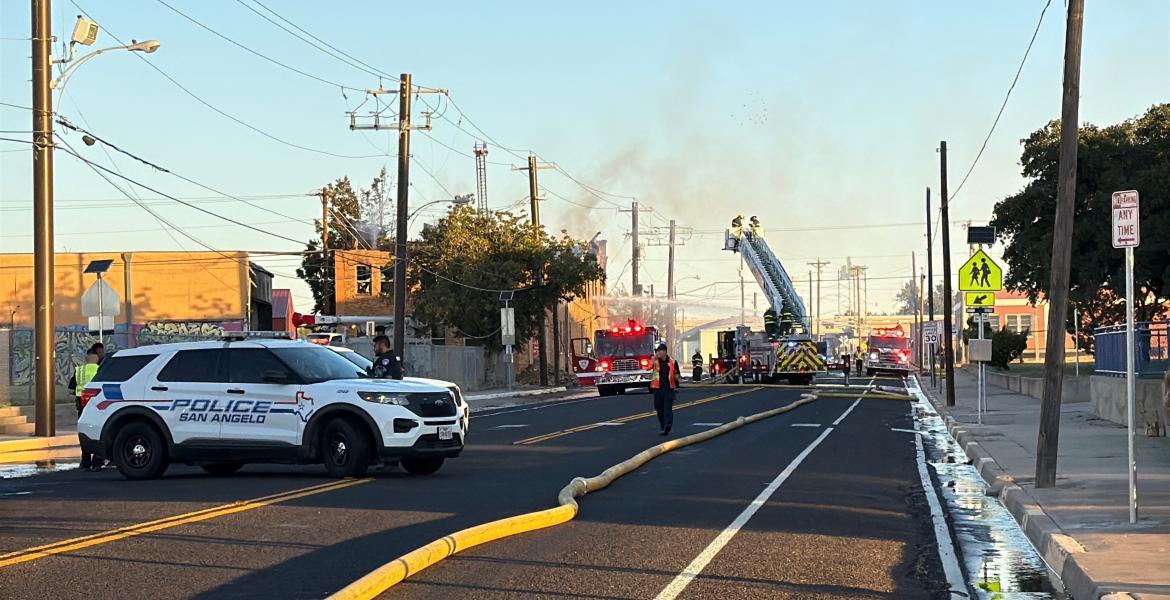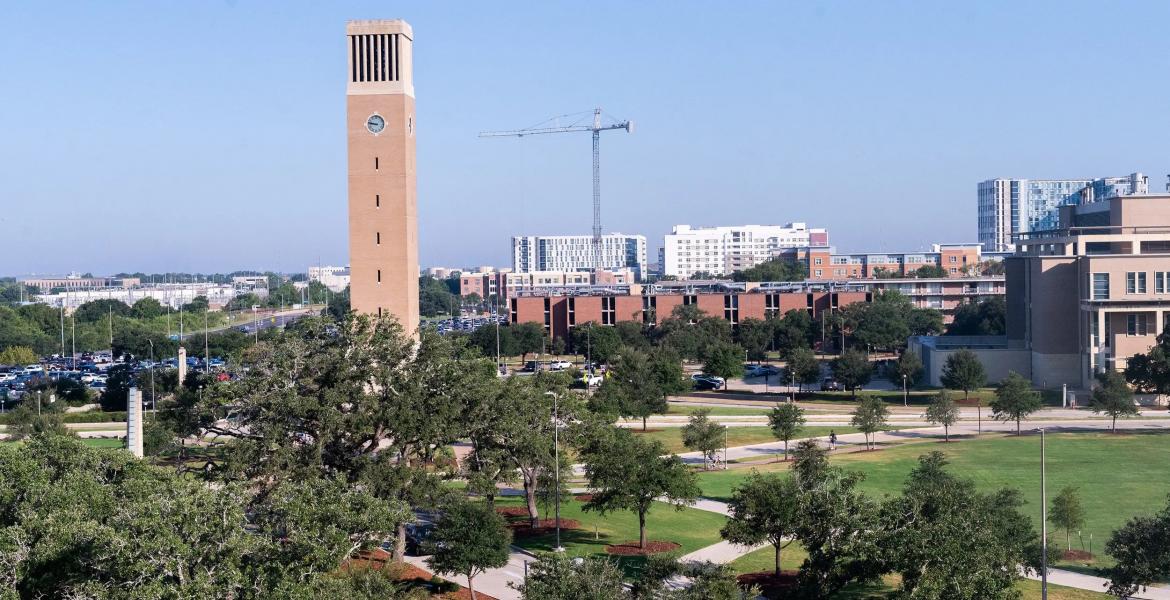When Jasmine Proctor, 9, of San Angelo heard and experienced the story about Jonathan, a little boy who grew up in severe poverty in the Dominican Republic, she learned not all kids in the world have the things she does, or the loving parents she has.
Unfortunately, many kids in developing countries share similar circumstances with Jonathan, or have it worse.
“I felt sad,” the Bowie Elementary student and Youth Cares group member said after walking through five interactive rooms that re-created the boy’s living environment, a place filled with filth, little to no food, and no hope. However, Jasmine learned all hope wasn't lost in the end thanks to people's compassionate spirit.
Jonathan’s story is part of The Compassion Experience, a self-guided tour that immerses visitors into a realistic experience with the use of an iPod, a headset and a 1,700 square feet interactive space.
The tour is a four-day event set up in the Parking lot of Southland Baptist Church, 4300 Meadow Creek Trail in San Angelo from Aug. 14-17. Visitors like Proctor are invited to “journey” through and submerge themselves into the lives of Jonathan and a little girl from the Philippines, Essee. These children narrate their stories about living in poverty in their countries and how hope helped them break the cycle of living in despair. For families or groups wanting to experience the event, The Compassion is free and appropriate for all ages.
“We want to give families in the U.S. the opportunity to experience poverty and hope in the developing world,” said Steve Spriggs with Compassion International.
The Compassion Experience started three years ago and has received a lot of support and attention nationwide. Because of the support, the Experience is now a cross-country tour that will stop at more than 35 locations and travel 65,000 miles across the U.S. this year. The purpose of the tour is twofold: it’s part advocacy and part marketing, the Colorado resident said. This advocacy and marketing includes inspiring people to take a bigger role in sponsoring a child living in poverty, or inviting people to be missionaries in countries plagued with poverty.
Overall, Compassion International works with 6,600 churches globally, and missionaries and sponsors with the organization have helped change the lives of many of these children through a focused “holistic” developmental approach.
“We don’t build homes; we build children,” Spriggs said about the work done abroad.
By building children, Spriggs explained that the organization provides kids like Jonathan with the resources they need to get around poverty and to break the cycle of it, which is not an easy feat.
According to a press release provided by the organization, there are 1.4 billion people today living on less than $1.25 per day, and in the areas where Compassion provides services, one in five children die before the age of five, mostly of preventable diseases. Additionally, 101 million children worldwide do not attend school.
"Also, the corruption within the government of these countries makes a significant impact,” Spriggs added.
Unfortunately, here in the United States, we don’t always think of these children living off of less than $1.50 a day, and sometimes people are skeptical when they hear the term “sponsor.” Some people wonder if there really is a child at “the other end,” Spriggs said.
Spriggs can say first-hand that “yes” there is.
Spriggs and his family have been a sponsor of two children for five years, Wilson from Kenya, and Rynelia from the Dominican Republic. Like the kids in the stories re-enacted, Wilson and Rynelia suffer every day; however, through Spriggs’ family sponsorship, not only do these kids feel like someone cares and they have hope, but Spriggs’ kids have also learned a lot about life and what it means for children to suffer from extreme poverty.
“It’s really great because it brings context of service and making a difference in a child’s life,” Spriggs said. “It’s a context of empathy.”
For instance, Spriggs said when his 16-year-old son experiences something new, he’ll think of Wilson and wonder if he’s shared that experience. He takes the time to consider someone else’s situation rather than just his own, which is something Spriggs said he's not sure would have happened had his family not gotten involved in this world-wide issue. Additionally, Spriggs’ 12-year-old daughter is proactive in getting the word out. She’s a big supporter of The Compassion, and she spends a lot of time corresponding with Rynelia.
“It has been such a benefit and a blessing for our family,” Spriggs said.
Because of his personal experience, Spriggs hopes The Compassion’s stories will bring a desire within communities across the U.S., including San Angelo, to help these children. Or if anything, he said, “We hope people have a different perspective of poverty and of hope.”
Thus far in San Angelo, that’s the message coming across to the children and adults who have immersed themselves in Jonathan and Essee’s experiences.
John Bautista, a prevention specialist with the Alcohol and Drug Abuse Council of the Concho Valley and who is a part of the Youth Cares Program, said he and his colleagues brought their group, which included Jasmine, out to The Compassion so they could get a different life perspective. Bautista also explained that part of the program is to teach the kids that there’s more to life than San Angelo and Texas, and these stories definitely provided a new insight.
“[With the Compassion Experience], you see a perspective out of our norm,” Bautista said. “It was those struggles that we may not see here. [These children] have a harder time than we do. Sometimes, we think we have it bad when really there are people who have it worse.”
Jasmine got the message, especially after hearing Jonathan’s story and learning about the child’s relationship with his father. She said that stood out to her the most.
“I wouldn’t want to be told I am nothing; I’m worth nothing, and I’m a mistake,” she said.
As for Dakota Hernandez, 10, the Bradford Elementary student said Jonathan’s story made her sad, but Essee’s story made a big impact on her as well.
“It was very sad because she didn’t know how to brush her teeth until she was 9 years old,” Dakota said. As for both stories combined, the 10-year-old girl said, “It was a different experience than ours. They’re life is sad.”
Out of the sadness though comes hope, said Mark Hanlon, Compassion International’s senior vice president of global marketing and engagement.
“When people think of poverty, they often think of the lack of things, the lack of stuff, the lack of money. Those are all symptoms of poverty,” he said. “The real issue is the lack of hope. Through our holistic child development program, Compassion stirs hope in children, and you’ll see that hope come to life at this event.”
For more information about The Compassion Experience, click here.
Subscribe to the LIVE! Daily
Required






Post a comment to this article here: